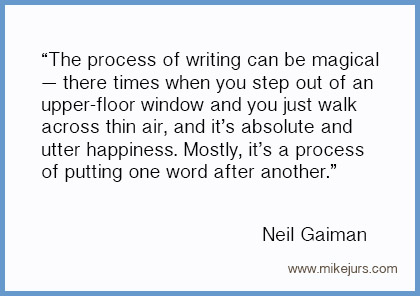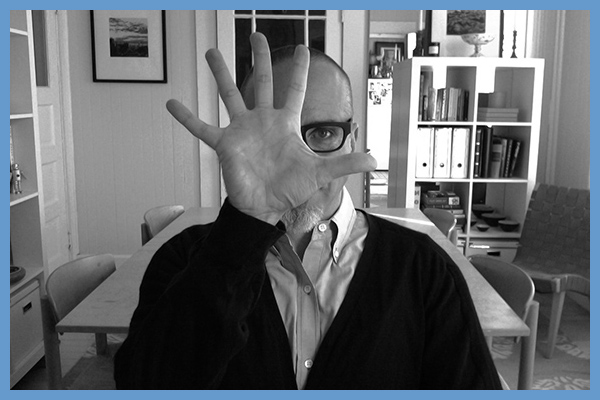The Secret to Great Writing
 November 13th, 2013
November 13th, 2013
I’m fascinated when other writers talk about the writing process. I used to think that if I talked with enough writers, I’d discover the “secret” that would make my writing explode off the page without effort. And then Jeffrey Eugenides (author of The Virgin Suicides, Middlesex and The Marriage Plot) told me that his secret was to write 800 words a day. Every day.
Wait. 800 words a day? That’s it?
It was a revelation. The secret to great writing is that there is no secret. All it takes is the discipline to write, day in, day out. Oh yeah, and talent, but talent alone won’t write a novel… or even a case study.
Makes you think.
I’m not a novelist (yet), but it doesn’t matter if you’re writing the next great American novel or a customer success story — the process is the same. Write something. Get it down and then edit the hell out of it until you can live with it. And then edit some more until it’s ready for the world.
I came across this video today, in which Neil Gaiman talks about his writing process. It reminded me of the same clear-headed advice that Jeffrey gave me 20 years ago in Madrid.
Neil says, “If you’re only going to write when you’re inspired, you may be a fairly decent poet, but you will never be a novelist — because you’re going to have to make your word count today, and those words aren’t going to wait for you, whether you’re inspired or not. So you have to write when you’re not “inspired.” … And the weird thing is that six months later, or a year later, you’re going to look back and you’re not going to remember which scenes you wrote when you were inspired and which scenes you wrote because they had to be written.”
I couldn’t agree more. Now, if you’ll excuse me, I’ve got 800 words to get down. Those suckers aren’t going to write themselves.
# # #
Less is … Better
 October 30th, 2013
October 30th, 2013
I’ll keep this short. And it turns out you should, too.
According to research by Jakob Nielsen, user advocate and principal of the Nielsen Norman Group, the typical online visitor reads only half of the content on pages with 111 words or less. That’s a maximum of 55.5 words. If you’ve made it this far, you’re already at 60.
Most users read about 20% of the text of an average page with 593 words. That’s comes out to just 118 words– not a lot of space to make an impression. Photos and videos are the real eyeball magnets these days. Just ask Pinterest and Instagram.
Make Every Word Count
You might think this would be depressing for a writer, but it’s not. I can recognize the same behavior in myself. Nielsen’s research serves as a helpful reminder that every word must engage the reader, starting with word one.
Now, think about your online copy. Is it grabbing readers’ attention? Is your information architecture and page layout helping them get to the good stuff fast? I could go on about how I can help you refine your message, engage your audience and drive sales, but at 200 words and counting, I think I’ve pushed my luck enough already.
Thanks for reading. I mean that.
# # #
Five Reasons to Work with a Freelance Business Writer
 October 16th, 2013
October 16th, 2013
I was talking with a marketing guy at a cocktail party last weekend and he asked me what I did for a living. When I explained I was a freelance business writer, the look on his face told me he didn’t quite get it.
He then asked me, “So why do people hire you?”
It’s a fair question. Not all marketing and PR people have worked with freelance writers before. Some don’t even know we exist. So as self-serving as it might be, let’s talk about why you might want to hire a professional business writer.
You should consider working with a freelance business writer if:
 November 20th, 2013
November 20th, 2013
 November 6th, 2013
November 6th, 2013
 October 23rd, 2013
October 23rd, 2013
